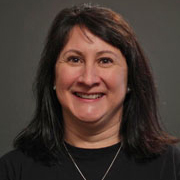Truth matters, online or off

Daily Scripture
Exodus 20:16; 23:1-3
Exodus 20
16 Do not testify falsely against your neighbor.
Exodus 23
1 Don’t spread false rumors. Don’t plot with evil people to act as a lying witness. 2 Don’t take sides with important people to do wrong. When you act as a witness, don’t stretch the truth to favor important people. 3 But don’t privilege unimportant people in their lawsuits either.
Daily Reflection & Prayer
Have you seen the meme which says, next to a picture of Abraham Lincoln, “’Don’t believe everything you read on the Internet just because there’s a picture with a quote next to it.’ –Abraham Lincoln”? * Doesn’t take much historical knowledge to realize Lincoln couldn’t possibly have said any such thing. He did say, “Truth is generally the best vindication against slander.” ** Technology, sadly, often spreads falsehoods more quickly. But God long ago commanded Israel to avoid lies of all kinds.
- Scholar Dennis T. Olson noted that the verses in Exodus 23 “expand upon the commandment in Exodus 20:16 (see Leviticus 19:16; Psalm 27:12; Proverbs 14:5; 19:5). The penalty for lying as a witness is found in Deuteronomy 19:18-19.” *** We typically swear witnesses in a courtroom to tell the truth, with legal penalties if there is proof they have lied under oath. Does the absence of such oaths on social media (or even a school hallway) make lies and rumors any less damaging there?
- Verses 2 and 3 in Exodus 23 showed another important effect of a command for truthful witness. False testimony could (and can) make a wrong action technically “legal,” whether in favor of an influential person or perhaps (less often) to help an underdog. Have you ever felt like rationalizing sharing falsehood because it might advance a result you thought was more advantageous or more just? Have you ever seen a discovered falsehood undermine a good cause?
Prayer
God of truth, I often hear myself and others talk about “white lies.” Help me to make truth the “default” approach, so that I have to think hard about whether any lie is “white.” Amen.
GPS Insights

Denise Mersmann
Denise serves as the Care Coordination Director for the churchwide Care Central department at Resurrection.
Years ago, in my competition speech and debate days, we were not allowed to use Reader’s Digest as a source. According to our coach, if we found an article in Reader’s Digest that provided the information we needed, we had to then find the original source and use it.
You see, Reader’s Digest reprinted articles from other magazines and often, in the process of shortening these articles, the intent of the original article was lost. I don’t know if that was intentional or if it was simply a product of bad editing. I can tell you that nothing changed the feel of a debate like standing up and saying, “Actually the original document said something different than you are claiming.”
But what about all those avid Reader’s Digest fans, who took what they read at face value? Were they accountable when they passed on this incorrect information? Most of us have read or heard something and, believing it to be true, claimed that truth and defended it heartily.
With current media options we now have so many sources of information that we almost always find one that says what we believe and want to be true. While this seems like a great deal, having some back-up to corroborate our beliefs, either legit or not, provides us with the muscle to tell others how right we are.
The problem is, no matter where our information comes from, it is ultimately our responsibility to tell the truth. Each of us must be accountable for the words that we speak, even when those words may not be what we want them to be.
So what does that mean for us in our day to day lives? It means that no matter how much we like someone, how much we want something to be true, how much it will cost us – we must do what it takes to ensure that our words are accurate and true – even at the expense of our own wishes.
And, if you are thinking, “How hard is it to tell the truth?” remember that we are human and as such our words can be skewed by our desire to not hurt someone, our need to be right, and even our belief that we know better. Unlike in days of old, when I was researching debate topics and speaking to a small audience of people, now a great deal of our communication is through social media channels and suddenly our words can go far beyond where we even intended. Suddenly, our need for truth and accuracy is greater than it has ever been. So I challenge you – don’t settle for the edited, abridged version of the truth. Do your research, find the original source, and let that guide your words.
© 2024 Resurrection: A United Methodist Church. All Rights Reserved.
Scripture quotations are taken from The Common English Bible ©2011. Used by permission. All rights reserved.
References
* You can find a collection of these at https://www.pinterest.com/pin/131659989079744463/.
** From (with some historical background) at https://www.quora.com/Abraham-Lincoln-said-Truth-is-generally-the-best-vindication-against-slander-To-what-extent-do-you-agree-with-Lincolns-statement.
*** Dennis T. Olson, study note on Exodus 23:1-3 in The CEB Study Bible. Nashville: Abingdon Press, 2013, p. 121 OT.
